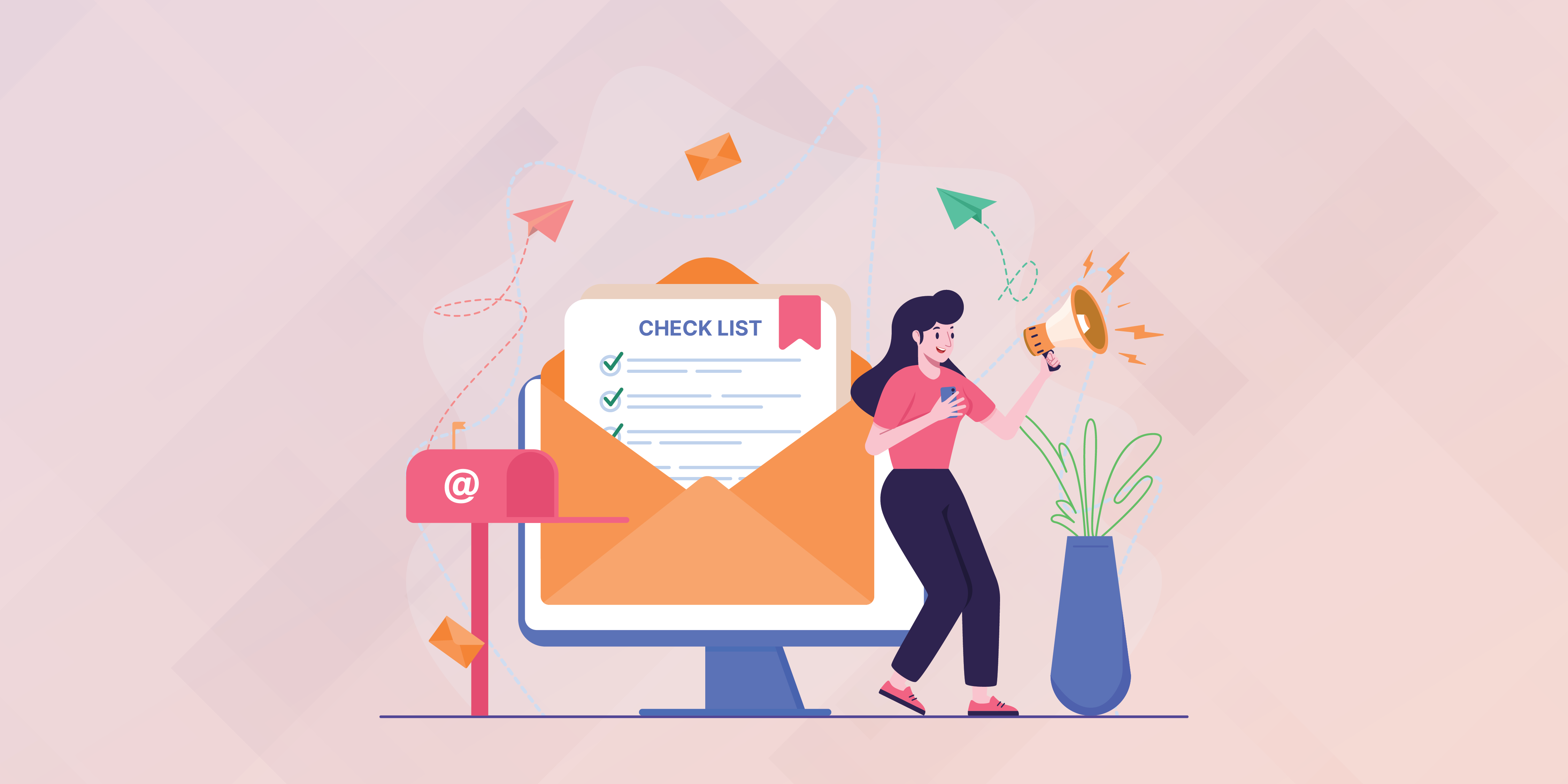

Last updated on
January 31, 2024
Marketing professionals constantly seek innovative ways to connect with their target audience, deliver personalized experiences, and drive tangible business results. Enter the realm of AI marketing automation, a transformative force revolutionizing how marketing campaigns are planned, executed, and optimized.
With the advent of artificial intelligence (AI) technologies, marketers can now access powerful tools and algorithms to analyze vast amounts of data, predict customer behavior, and automate various marketing processes with remarkable precision.
In this blog post, we will delve into the fascinating world of AI marketing automation and explore its myriad applications, benefits, and potential it holds for businesses across industries. We will uncover how AI is reshaping marketing strategies, empowering marketers to make data-driven decisions, and creating personalized experiences that resonate with customers on a whole new level.
AI marketing automation uses artificial intelligence (AI) technologies and algorithms to automate various marketing tasks and processes. It involves leveraging AI to analyze data, make predictions, and execute marketing activities with minimal human intervention. The goal is to streamline marketing operations, improve efficiency, and enhance customer experiences.
Here are a few stats that can help you understand why AI marketing automation is the new buzzword in the digital marketing industry and why you should be among the early adopters.
Marketers should adopt AI marketing automation for several reasons. Here are a few stats and examples.

Have you seen those personalized product recommendations that you get when you spend some time browsing through Amazon? Well, let me tell you a secret: Amazon uses AI!
Amazon was one of the first eCommerce companies to recognize the benefits of AI in eCommerce. With AI analyzing tons of data, Amazon was able to provide recommendations that would appeal to its customers. This level of personalization improves customer engagement, loyalty, and conversions.
In fact, Influencer Hub Marketing reported that 44% of their survey respondents reported that content production was the most common form of AI adoption. Coupled with the fact that 80% of customers are most likely to do business with companies that offer personalized experiences, AI adoption for providing personalized content will only increase.
Marketers can save time and resources by automating data analysis, campaign management, and customer segmentation. AI-powered tools can handle large volumes of data and tasks more efficiently, freeing up marketers to focus on strategic planning and creative initiatives.
For example, with an AI email marketing tool, you don’t need to design and write emails by yourself or hire specialists, for that matter; you can simply have a tool that allows you to create top emails with just a few clicks.
According to Accenture, companies that implemented AI saw an average return on investment (ROI) increase by 30%. By identifying opportunities, trends, and gaps that a human might miss, AI can allow companies to find new revenue streams.
AI marketing automation enables marketers to optimize their return on investment (ROI) by improving targeting, messaging, and campaign performance. AI algorithms can analyze vast amounts of data and identify patterns and insights that human marketers may miss. This helps marketers allocate resources effectively, optimize campaign strategies, and improve conversion rates.
Predictive analytics can make you feel like a chess player, always knowing which piece to move to achieve your desired result.
With the rise of AI-powered predictive analytics, marketers have gotten a powerful tool that has allowed them to create precise marketing campaigns. Marketers can now forecast customer behavior, such as purchasing patterns and the likelihood of churn.
This enables marketers to anticipate customer needs and preferences, optimize targeting, and personalize their marketing efforts.
You might get bored stiff if you have to do the same tasks, day in and day out, without getting to the most critical action items you had in mind. This is where AI marketing automation helps you.
Automated tools can handle repetitive tasks, such as scheduling posts, analyzing data, and responding to customer inquiries. This frees marketers to focus on higher-value activities like strategy development, creativity, and customer relationships.
For example, it would have taken you the better part of a day to answer all basic queries related to your product. But with an AI-powered chatbot, such a task can be accomplished without you ever getting involved. Thus, allowing you to focus on your core job.
AI marketing automation enables marketers to deliver seamless, personalized customer experiences across various channels. By understanding customer preferences and behaviors, AI can help marketers tailor messaging and content to individual needs. This improves customer satisfaction, engagement, and loyalty.
Each and every day, some novel applications of AI have been emerging, reliving some customer pain points or the other. Keeping tin mind, here are a few applications of AI marketing automation that you as a marketer should look into.
Let’s look at some of the use cases of AI marketing automation.

Not all leads are created equal. That being said, sifting through each of them, giving them a score, and determining which to nurture and which to not all day is not a task I would envy. I would employ AI to help automate the process.
AI can analyze customer data and behavior to automate the lead scoring process. By assigning scores to leads based on their likelihood to convert, marketers can prioritize and focus their efforts on high-value leads. AI can also automate lead nurturing by delivering personalized content and recommendations to guide leads through the sales funnel.
With AI automating every aspect of digital marketing, it was just a matter of time before email marketing got the AI treatment. AI email marketing allows marketers to craft compelling and highly targeted email campaigns with high open, click-through, and conversion rates.
With AI email marketing tools like Mailmunch, marketers can leverage AI to craft engaging subject lines that increase open rates by 10X. Also, they can optimize the conversion elements by generating CTAs that compel the recipients to take action.
With AI, designing email is not a challenge anymore! AI image generators can help you customize your email templates with considerable ease.
Mailmunch integrates seamlessly with top CRMs and email marketing tools (MailChimp, ActiveCampaign, etc.). So you can get a seamless experience in running campaigns.
AI-powered predictive analytics can analyze historical data to forecast customer behavior and trends. Marketers can leverage these insights to anticipate customer needs, optimize targeting, and personalize marketing campaigns. Predictive analytics can help identify potential churn, recommend products, and optimize pricing strategies.
AI can help optimize marketing campaigns across multiple channels, ensuring consistent and personalized customer experiences. By analyzing customer data and behavior across channels, AI can recommend the most effective channels, timing, and messaging for reaching and engaging customers.
AI-powered and virtual assistants can provide instant and personalized customer support. They can handle many customer inquiries, answer frequently asked questions, and assist with basic transactions. Chatbots can simulate human-like conversations and improve response times, enhancing customer satisfaction and reducing customer service costs.
AI can enable highly personalized marketing campaigns by analyzing customer data and generating individualized recommendations, offers, and content. It can dynamically adjust messaging, creative elements, and targeting based on customer preferences and behaviors. This level of personalization improves customer engagement and conversion rates.
AI can analyze market trends, competitor pricing, and customer behavior to optimize pricing strategies. It can dynamically adjust prices based on demand, inventory levels, and customer segments. This helps maximize revenue and profitability while remaining competitive.
Implementing AI marketing automation effectively requires a well-planned roadmap and ensuring your marketing team has the necessary skills. Here's a suggested approach for successful implementation:
Identify your marketing objectives and how AI automation can help you achieve them. Determine your desired outcomes, such as increased personalization, improved efficiency, or higher ROI. Set measurable goals that align with your overall marketing strategy.
Evaluate the quality and availability of your data. AI relies on accurate and relevant data to deliver meaningful insights and automation. Ensure you can access clean, structured data that AI algorithms can use effectively. Identify any gaps or data collection processes that need improvement.
Research and select the AI marketing automation tools and technologies that align with your goals and requirements. Consider factors such as the specific features and capabilities of the tools, ease of integration with your existing systems, scalability, and vendor support. Test and evaluate different options to find the best fit for your organization.
Start with a small-scale pilot project to test and validate the effectiveness of AI marketing automation in your organization. Choose a specific use case or area where you want to apply AI, such as lead scoring, personalized email campaigns, or chatbot implementation. This allows you to assess the feasibility, ROI, and potential challenges before scaling up.
Provide training and resources to ensure your marketing team has the skills to work effectively with AI marketing automation. Offer training programs that cover AI concepts, tools, and implementation best practices. Encourage team members to enhance their technical skills and data literacy. Consider partnering with external experts or hiring new talent if required.
Encourage your marketing team to actively engage with AI marketing automation tools and technologies. Provide opportunities for them to experiment, test, and learn from practical experiences. Encourage collaboration and knowledge sharing within the team to foster a culture of continuous learning and improvement.
Continuously monitor and measure the performance of your AI marketing automation initiatives. Track key metrics and evaluate the impact on your marketing goals. Use the insights to refine and optimize your strategies, targeting, and messaging. Regularly review and update your implementation roadmap to incorporate new learnings and advancements in AI technology.
With the latest advancements in language models and machine learning algorithms, AI-powered marketing automation is becoming even more powerful and precise, providing customers with highly personalized experiences.
Moreover, AI is also giving rise to new job roles requiring particular AI skills, machine learning, and data analytics. However, innovation in AI is about more than automation and job displacement. By leveraging AI, marketers can focus on strategic planning and designing unique campaigns.
NLP is a branch of AI focusing on understanding and processing human language. In marketing automation, NLP enables more advanced chatbots and virtual assistants that can understand and respond to natural language queries. NLP also powers sentiment analysis, allowing marketers to gauge customer sentiment from social media posts, reviews, and other text-based sources.
How cool would it be if you only had to click a picture of a product, and your favorite eCommerce store pulled up a list of such products to browse through? Sound too good to be true, right? Well, what if I told you that you are closer to getting such a feature than you might expect, all thanks to Computer vision?
Computer vision involves AI algorithms that interpret and understand visual content, such as images and videos. In marketing automation, computer vision analyzes visual data, identifies objects, and extracts information. This technology can be leveraged for visual search, image recognition, and personalized product recommendations based on visual preferences.
Conversational marketing utilizes AI-powered chatbots and messaging platforms to facilitate real-time, personalized customer interactions. Marketers can engage customers in interactive conversations, answer questions, and provide recommendations. Conversational marketing enhances customer experiences, fosters engagement, and helps guide customers through the buying process.
AR and VR technologies are integrated into marketing automation to create immersive and interactive experiences. Marketers can leverage AR and VR to showcase products, allow virtual try-on, and provide virtual tours. These technologies enhance customer engagement, build brand loyalty, and create memorable experiences.
By leveraging AI marketing automation, businesses can unlock valuable insights from vast amounts of data, enabling them to make data-driven decisions and stay ahead of the competition. AI-powered chatbots and virtual assistants enhance customer service and engagement, providing instant support and personalized recommendations.
The cost-effectiveness and efficiency of AI marketing automation make it a vital tool for businesses of all sizes. It streamlines operations, automates repetitive tasks, and allows marketers to allocate their time and resources strategically.
As AI technology evolves, the future holds even more exciting possibilities. Natural language processing, augmented reality, and virtual reality are emerging trends that will further transform the marketing landscape.
Embracing AI marketing automation is essential for businesses seeking to thrive. By combining human creativity with the power of AI, marketers can create impactful campaigns, foster meaningful connections with their audience, and achieve remarkable growth.
A voracious reader and a music lover, Ammar has been writing engaging and informative content for over 3 years for B2B and B2C markets. With a knack for writing SEO-optimized content, Ammar ensures the results speak for themselves.
Tags:

M. Usama
April 19, 2024

M. Usama
April 19, 2024

M. Usama
April 18, 2024